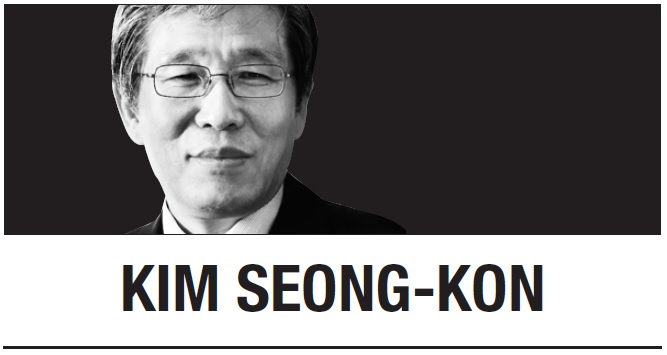[Kim Seong-kon] Teachers change the world and our children
By Korea HeraldPublished : July 26, 2023 - 05:21

Recently in Seoul, an elementary school teacher died by apparent suicide in her classroom, with claims emerging since that she had been dealing with a belligerent parent. The deceased teacher was a 23-year-old young woman who had just begun her career as an educator. In another elementary school in Seoul, a sixth grader beat up his female homeroom teacher, whose injuries will likely take weeks to heal.
Embarrassingly, violent assaults on teachers by students and parents are becoming common these days. According to the Ministry of Education, the number of teachers physically assaulted by students or parents increased from 172 in 2018 to 361 in 2022. The report that more than 1,000 teachers were victims of physical assault in the past five years disheartens and appalls us.
In the past, our left-wing government fostered such an undesirable phenomenon in the name of promoting students’ rights. Perhaps their initial intention was good, but the outcome has been nothing short of disastrous for teachers, who can no longer discipline students. What can teachers do when students violently protest and parents sue teachers for child abuse?
In the past, school violence had to do with teachers’ using corporal punishment to discipline students. But those days are over now. Today, there are three types of school violence. The first is students bullying fellow students. The second is students’ verbal or physical assaults on teachers. And the third type comes from parents’ threats and consequent violence against teachers.
The first type of school violence is a cowardly act because it torments the weak, not the strong. Swept up by mob psychology, bullies do not even feel a sense of guilt. Meanwhile, the victims of school bullying have to live with indelible psychic scars all throughout their lives.
As for the second type, it is highly unethical to assault one’s teacher, whether verbally or physically. It cannot happen in any civilized country, especially not in a Confucian society where people respect their teachers and parents on the same level. If children do not respect their teachers and act accordingly, they are likely to treat their parents and their supervisors at workplaces in the same fashion.
The third type of school violence is also bad. Parents are not supposed to interfere with a teacher’s job to discipline students. Schools are a place where students not only acquire knowledge, but also learn how to be a well-behaved person with good manners. Of course, parents can submit grievances to the principal’s office if something is unfair, but they do not have the right to intimidate or threaten teachers. Nevertheless, some parents torment or even physically assault teachers, blindly taking the side of their problem child.
In the past, teachers had pride and self-esteem in their vocation. At the time, all of society, including students and parents, respected teachers. Teachers were passionate and dedicated despite struggles and challenging issues. Teachers were stars in the eyes of their students.
Unfortunately, those good old days are gone. These days, it is difficult for teachers to have pride, passion or dedication because students and parents value and trust private academies, not regular schools. Studying at the hagwon until late at night, many students fall asleep in class at school. If teachers try to wake them up, they become upset and protest pugnaciously. Every day, teachers feel that students no longer respect them.
Of course, parents can protest when and if a teacher crams their political ideology into their immature students. Alexandra K. Trenfor said, “The best teachers are those who show you where to look but don’t tell you what to see.” Unfortunately, some of our politically oriented teachers try to infuse their own ideology into students’ minds, instead of letting them ponder and choose.
Otherwise, parents should respect teachers so that teachers could encourage and inspire their students. According to American writer William Arthur Ward, “The mediocre teacher tells. The good teacher explains. The superior teacher demonstrates. The great teacher inspires.” French novelist Anatole France likewise said, “Nine-tenths of education is encouragement.” American journalist Charles Kuralt, too, wrote, “Great teachers know how to bring out the best in students.”
Looking back upon our education, all of us had great teachers who have made us what we are today. Good teachers are students’ lifetime milestones and guiding constellations. Having great mentors is a blessing, for they will change students’ lives forever. Indeed, we cannot discuss education without thinking about good teachers who not only inculcate their students with knowledge, but also open their minds.
In memory of the young teacher who sadly took her life in the “blackboard jungle,” we must value and cherish our teachers from now on. Without great teachers who could inspire and enlighten our children, we could not have a bright future.
Kim Seong-kon
Kim Seong-kon is a professor emeritus of English at Seoul National University and a visiting scholar at Dartmouth College. The views expressed here are his own. -- Ed.
-
Articles by Korea Herald



















![[Today’s K-pop] Treasure to publish magazine for debut anniversary](http://res.heraldm.com/phpwas/restmb_idxmake.php?idx=642&simg=/content/image/2024/07/26/20240726050551_0.jpg&u=)